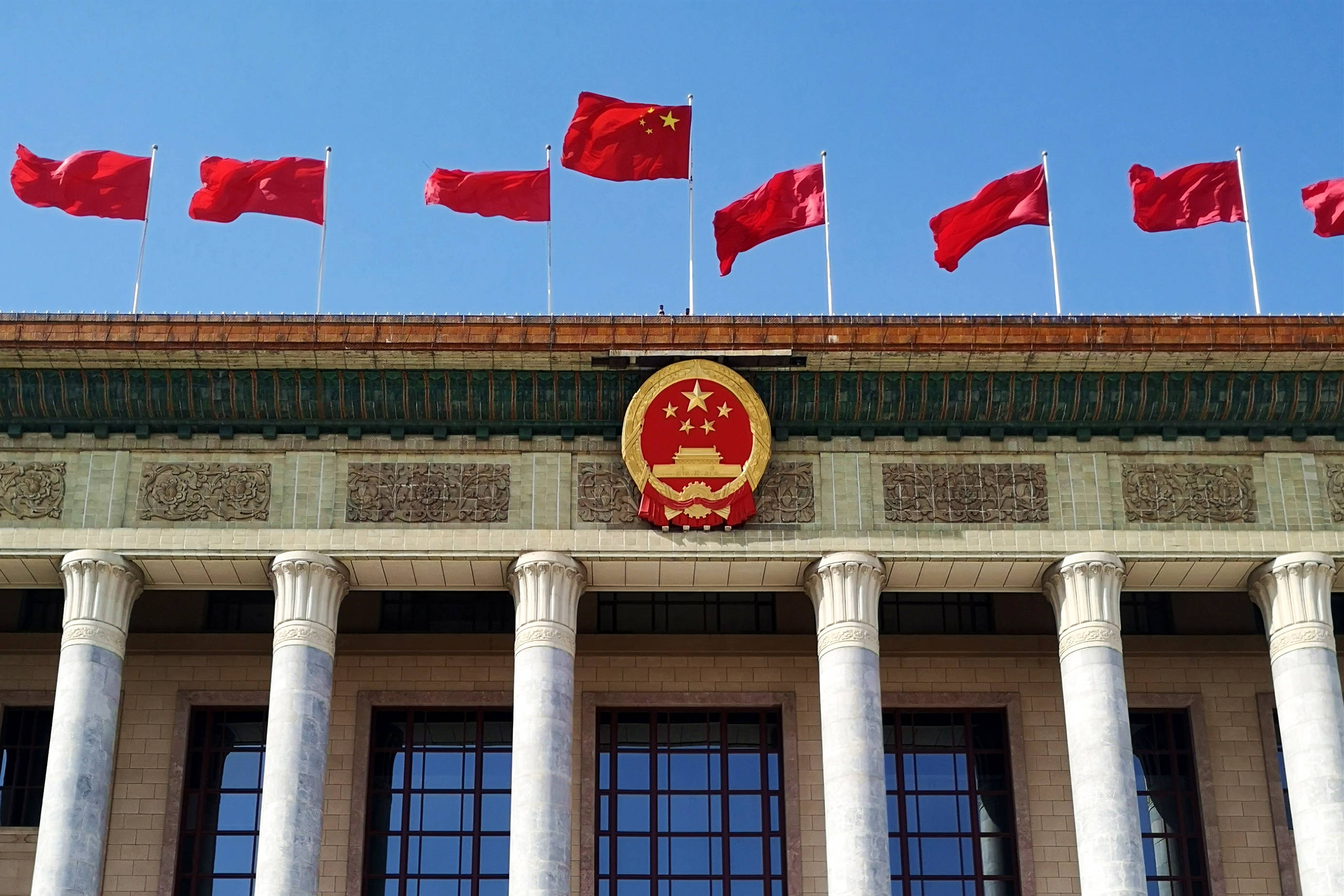Draft foreign investment law shows China's greater openness
- By Zhang Jiaqi and Guo Yiming
 0 Comment(s)
0 Comment(s) Print
Print E-mail China.org.cn, March 11, 2019
E-mail China.org.cn, March 11, 2019
A draft of China's foreign investment law, submitted to the National People's Congress (NPC) for a third reading on March 8, demonstrates China's resolve in further opening up and creating a level playing field.

Comprising 41 articles in six parts, it includes many stipulations aiming to promote, protect and manage foreign investment and to ensure that domestic and foreign enterprises are subject to a unified set of rules and compete as equals, explained Wang Chen, vice chairman of the NPC Standing Committee.
Once adopted, it will replace three existing laws covering joint ventures and wholly foreign-owned enterprises, and is designed to address foreign concerns about investing in China.
Equal treatment
Government policies supporting enterprise development will apply equally to foreign-invested enterprises; the conditions for technological cooperation in an investment project shall be negotiated in a fair and equal manner and agreed upon by all the involved parties.
NPC deputy Wang Junfeng, who is also head of the All China Lawyers Association and a member of the NPC constitution and law committee, said the law was an important measure to improve the legal system for foreign investment, and will play a positive role in its introduction and management.
Over the past decades, China has made substantial achievements in attracting foreign capital. By the end of 2018, about 960,000 foreign-invested enterprises had been set up in China, with accumulated foreign direct investment (FDI) exceeding US$2.1 trillion.
The figure has ranked first among developing countries for 27 consecutive years, according to the United Nations Conference on Trade and Development (UNCTAD).
Jiang Yang, a member of the Chinese People's Political Consultative Conference (CPPCC) and former deputy head of the China Securities Regulatory Commission, said the draft law, underlining equality and fair competition, would boost the confidence of foreign investors in their long-term undertakings in China.
Under the new law, the state will guarantee that foreign-invested enterprises can take part in standards-setting work on an equal footing and government procurement activities through fair competition in accordance with law, and that government bodies and their employees are prohibited from using administrative measures to force any technology transfer.
In the view of Fang Yan, an NPC deputy and deputy head of Shaanxi Lawyers Association, "equality" is the word underlining the entire draft. She was particularly impressed that the three parts on the promotion, protection and management of foreign investment all embody the principle of equal treatment of domestic and foreign investment.
"Openness brings progress while self-seclusion leaves one behind, which I think is the initial intention for China to work on the foreign investment law," she said.
Competing on level playing field
The draft law is due to be voted on by the deputies at the closing meeting of the second session of the 13th NPC on March 15.
According to Fang, once passed, the law will bring both opportunities and challenges to Chinese enterprises, but it was the opportunities rather than the pressure and challenges that should be focused on.
"Chinese enterprises are not afraid of competition, and we should have full confidence in them. As long as we give them equal opportunities to compete, Chinese enterprises will surely excel in international competition," Fang stressed, adding that efforts put into drafting the foreign investment law showed China's growing confidence.
Wang Yu, chairman of Spring Airlines and a CPPCC member, said: "Faced with more foreign market players in China, we should grow stronger, increase core competitiveness and at the same time welcome cooperation."
Ding Shiqi, an NPC deputy and deputy general manager of Tongling Nonferrous Metals Group Co., Ltd., said the entry of foreign investors would bring in not only capital, but also excellent management experience, etc. "We should not, and will not, worry about the entry of competitors after the opening up. In fact, it is good to have competition."
Moreover, Ding said he also looks forward to seeing high-level foreign investors to come to China and contribute to the country's economic growth alongside Chinese companies.
"The more open, the better," Ding stressed.
Developing based on practices
Meanwhile, Fang said laws were required to respond to the changing realities, and for any law, it was inevitable to make necessary amendments according to the new situations and problems encountered in implementation.
However, she repeatedly reiterated that the draft law had been worked out based on thorough investigation and the wide solicitation of opinions.
Before the draft law was submitted to a third reading, it had been revised based on careful study of the NPC Standing Committee's feedback and the opinions from all parties concerned, as well as of comments from deputies and other sources, she said.
Despite this assertion, Wang Junfeng thought the current draft law might not address all the needs and problems in regard to foreign investment, and would need to be constantly improved in the practice of opening up to the outside world.
Moreover, further publicity, introduction and description of the law and its stipulations were needed to ensure the law was more feasible and functioned well, suggested Sun Yibiao, a CPPCC member and former vice minister of China customs.
On this matter, Liu Junchen, deputy director of the Legislative Affairs Commission of the NPC Standing Committee, said there would be supporting rules and regulations formulated once the law had been adopted, so as to better meet expectations and build an open, transparent and predicable legal environment.





